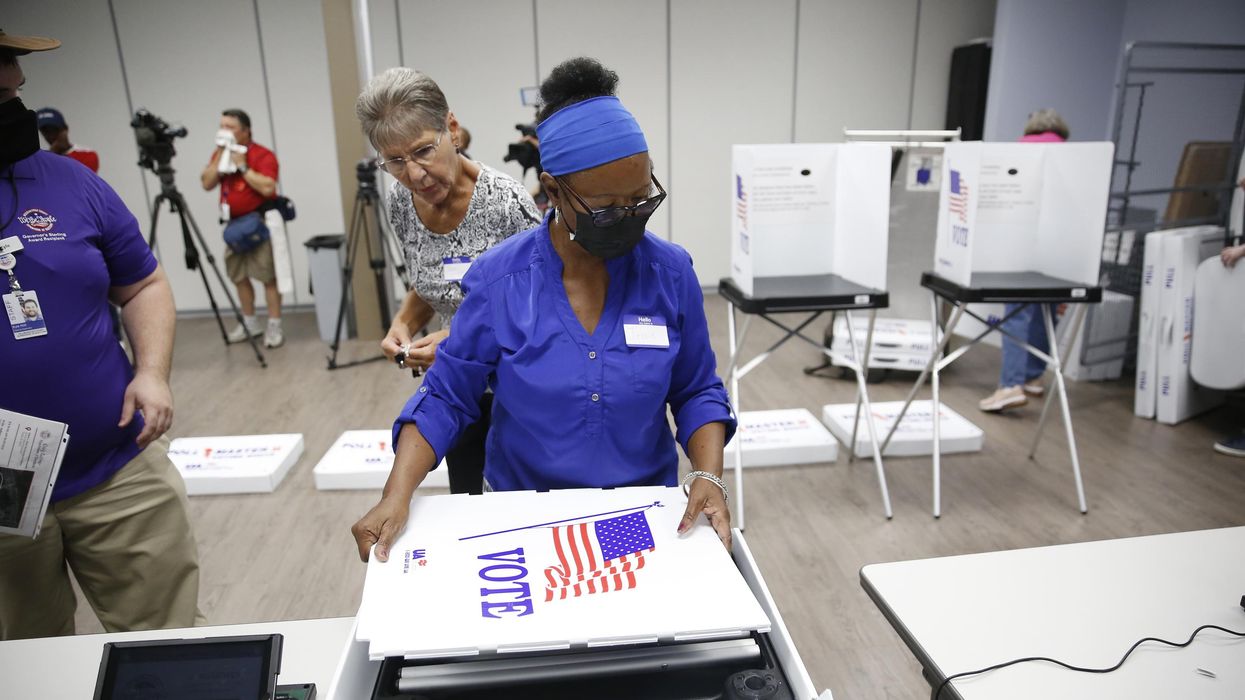Rodriguez, who will be a first-year student at the University of Chicago in the fall, is the co-founder of Students for Open Primaries and starred in the documentary “The Young Vote.”
Two years ago, I wrote an op-ed about my pre-registration to vote in Florida as an NPA, shorthand for “no party affiliate”. In June, I turned 18 and officially became a registered voter. My party? Still no party. I am one of 3.8 million NPAs in the Sunshine State. I am not satisfied with the two-party dilemma, which has continued to impact our nation negatively on everything from the economy to the environment. And I am not alone, as 50 percent of millennials and Generation Z voters today are independent.
Unfortunately, closed primaries are not just an issue in Florida. In 14 other states and the District of Columbia, at least one party will conduct closed primaries for congressional and state-level offices in the current election cycle. This means that for the 30 percent of uncontested general elections in 2022, independents and third-party voters lose out on making their voice heard on important issues that are decided coming out of the primary.
Gen Zers and young voters have the most to lose in the upcoming midterm elections. We all saw the consequences of bad policy. Nationwide, we are now seeing the impacts that Congress’ failure to codify Roe v. Wade had on reproductive rights following the Supreme Court’s decision to overturn the landmark decision. Our politicians aren’t acting on the issues that matter to all voters, instead choosing to only act on what favors their own party. In Florida, legislators are focused on waging wars in the classroom and “ setting aflame ” the mouse at Disney World because it satisfies party-line voters in the primary. The current system doesn’t work, and while our generation has the most to lose, many are still locked out of the primaries.
There is a huge dysfunction between who voters are versus whom they elect. Young voters have diverse political opinions, but the people being voted into office have little to no diversity in their political actions. As the future of the nation, young Americans will feel tomorrow’s impacts of the decisions that our elected officials are being trusted to make today. Open primaries will produce elected officials more accountable to their constituents than to their party while closed primaries will result in officials who are slow or unwilling to act on pressing matters impacting the future of the nation. Open primaries let independent voters who were previously shut out of the system vote; such a system also allows Democrats and Republicans to vote for whomever is the best candidate and not the person who has the more extreme voting record on either side of the aisle.
Despite the huge implications closed primaries have on elections, there is a concerning little amount of data on the very real impacts that closed primaries have on young voter turnout. The latest numbers directly related to young independents come from a 2018 report from Tufts University, which found that 44 percent of young voters identify as third party or independent.
That is why my organization, Students for Open Primaries, is moving forward with the 2022 Young Voter Survey. From now until the end of the summer season, we are reaching out to young voters from across the country to hear about their experiences with election-related issues, including closed primaries. Voters ages 16-39 can answer this short, 10-question survey at youngvotersurvey.com.
Please take this important referendum on election reform for young voters.



















Trump & Hegseth gave Mark Kelly a huge 2028 gift